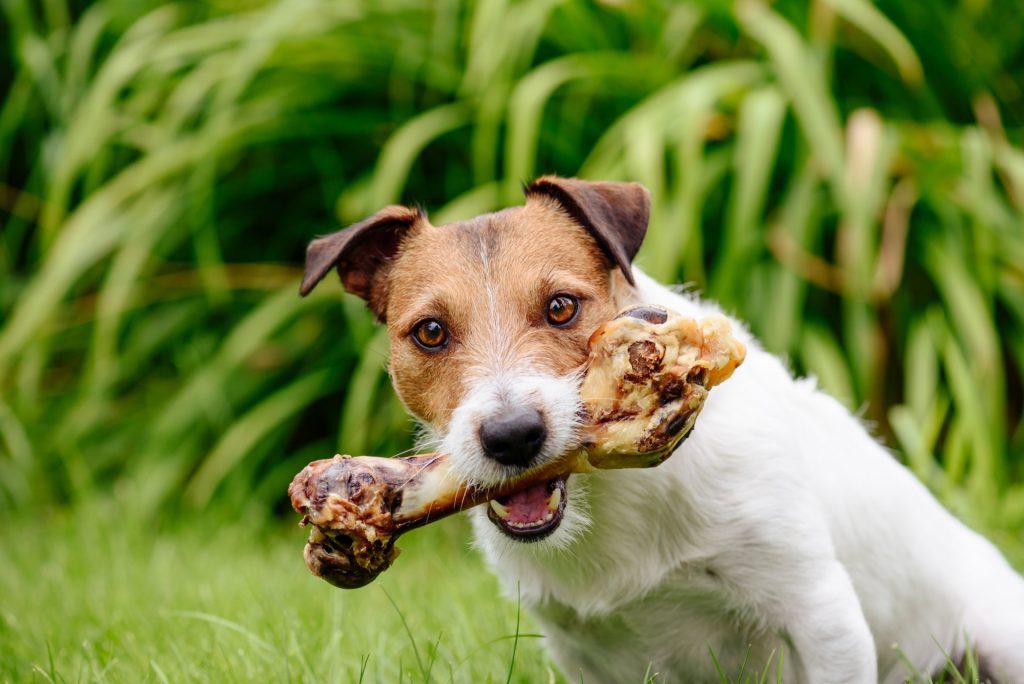A common question we get asked is whether you can feed your dog or cats bones. Whilst bones can be a great source of enrichment, can help keep teeth clean and provide a good source of calcium they can also cause a lot of problems such as:
- Constipation (particularly if cooked)
- Polyradiculitis causing paralysis (from raw chicken bones)
- Pancreatitis (particularly from bones with marrow)
- Obstructions in the oesophagus, trachea or gut.
- Broken teeth.
- Stomach upsets
To avoid the above complications, we suggest following these basic principles:
Always raw
Trim the primary fat of the bone and feed it raw. Cooking it changes the matrix of the bone and makes it a lot harder to digest leading to constipation and obstructions.
Think big
Big bones are likely to be better such as roo tails, soup bones or turkey necks. “Bendy” bones such as vertebrae are great as they have lots of little crevices for the dog or cat to work at. For most dogs the knuckles of a femur bone are great for dogs to gnaw at. The idea is they should work hard to strip the meat and cartilage off the bone.Feed the bones whole to avoid cut edges causing fractures to teeth.
Do a practice run
Offer their first bone under careful supervision to ensure they don’t attempt to swallow it whole or get a stomach upset from it. Remove it after a few minutes and monitor them for vomiting or diarrhoea for the following 24 hours. If they seem fine, gradually build the amount until they are eating 1-2 whole bones per week.
Chuck them out
If they haven’t eaten it within 1-2 hours throw it out. That way it won’t become contaminated or dry out.
Remember some pets may not suit bones so we recommend supervised offering and a discussion with your vet about what’s best for your pet.



